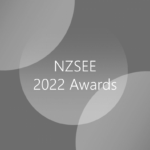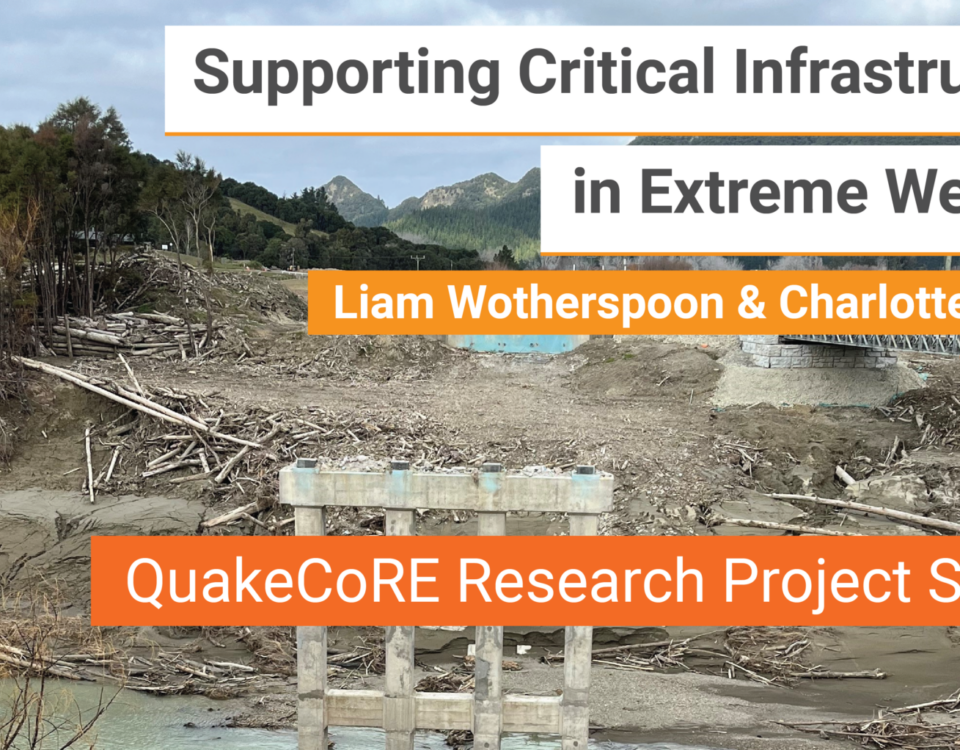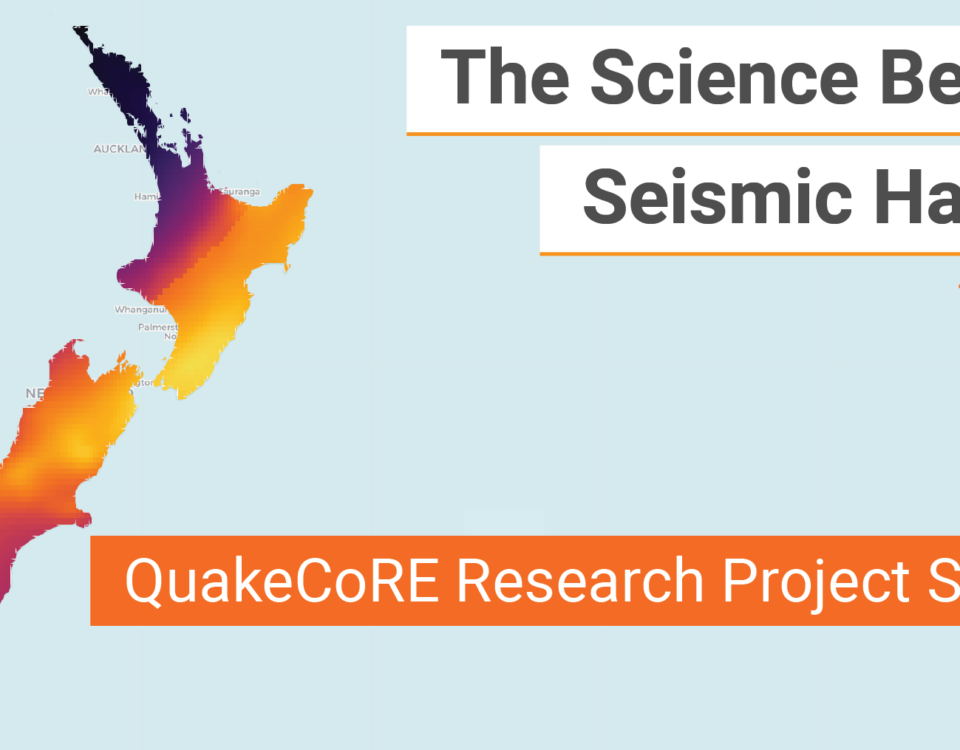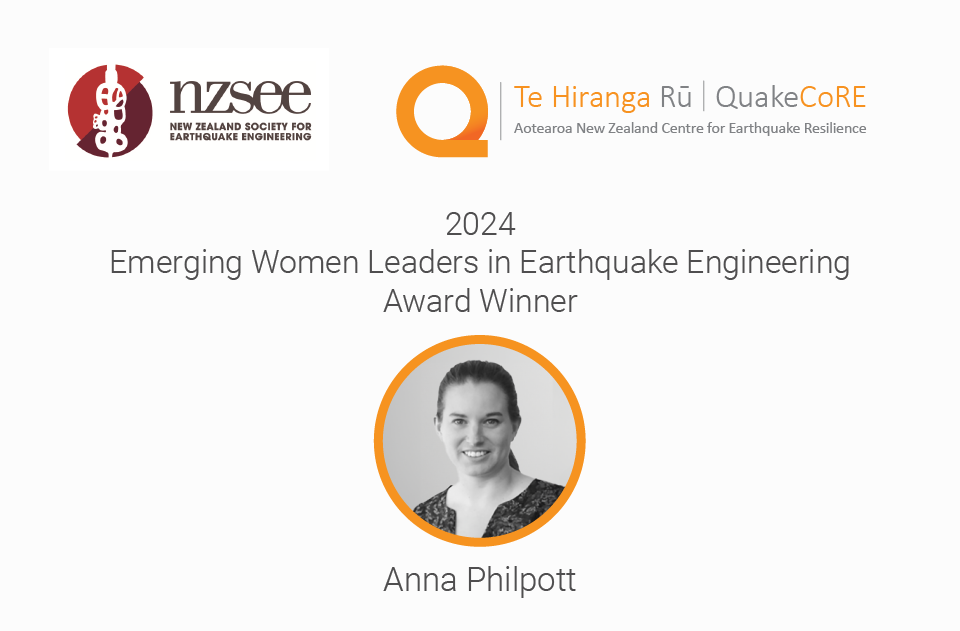
NZSEE 2022 Award Recipients
May 4, 2022CRISiSLab Challenge 2022
June 1, 2022Workshop details for the 2022 Annual Meeting
| Date | Workshop Leader(s) | Workshop detail |
| Monday 29 August | ||
| 1.00pm – 4.00pm | David Johnston | Exploring the Role of Public Education in Building Earthquake Resilience
Over the past decade, a number of regional hazard initiatives have emerged, designed to build our collective resilience to future earthquakes. These so-called boundary organisations offer an -˜opportunity space-™ for innovation and collaboration between science, policy and practice. East Coast LAB (Life at the Boundary) built on earlier efforts (Wellington, It’s our Fault and the Auckland DEVORA (Determining Volcanic Risk in Auckland), to develop a regional focus on earthquake and tsunami hazards for the East Coast of the North Island. AF8 [Alpine Fault magnitude 8] initially focused on producing a multi-hazard response plan for a future great Alpine Fault earthquake, as well as engaging the community to build resilience through engagement and science education. The Plate Boundary Network, initiated by AF8 and ECLAB, represents the now well-established collaboration of these regional natural hazard programmes and has provided a platform for innovative public education design and implementation, related to earthquake hazard and risk, and preparedness. This workshop will showcase recent public education tools designed to engage the public on the science of the plate boundary across Aotearoa-New Zealand. Workshop participants will be encouraged to share, learn and participate in a discussion about developments and future directions for risk communication and public education for improving societal resilience. |
| 1.00 pm – 6.00 pm | Brendon Bradley /
Matt Gerstenberger |
NZ National Seismic Hazard Model
Presentation of the science, context, and latest results (near-final) of the 2021-2022 National Seismic Hazard Model programme led by GNS Science, and funded by MBIE and EQC. |
| 1.00 pm – 4.00 pm | Liam Wotherspoon /
Charlotte Brown |
Resilient Transport System Research Coordination Workshop
The session will provide an opportunity for attendees to hear about current transportation research (within and external to QuakeCoRE), and to hear from industry representatives on the ongoing resilience initiatives. This workshop is aligned with the activities of IP3 and, given this is a new stream of research, a key driver of this workshop is the bringing of people together to discuss plans and ideas. A particular focus of the session will be a gap analysis between current research programme outcomes and the needs identified by industry, so that we can ensure our research programme meets industry needs going forward. Attendees will also have chance to discuss any challenges they are experiencing with the work, opportunities for further collaboration, and ways to enhance the impact of our collective efforts. Spaces are limited, so priority will be given to IP3 researchers, industry affiliates and those with a demonstrated passion for resilient transportation/infrastructure |
| 1.00 pm – 4.00 pm | NIUPATCH / Kotalo Leau | NIUPATCH presents: Talanoa-HUBBS (Humans United Beyond Borders) Pacific Urban Resilience
Highlighting NIUPATCH’s partnerships with schools, community groups and churches, NIUPATCH (Navigate in Unity: Pacific Approaches to Community Humanitarianism) shines a light on resilient and sustainable urban Pacific communities. |
| Tuesday 30 August | ||
| 9.00 am -12.00 pm | Anthony Hoete /
Tūmanako Fa’aui |
Atlas of Marae Resilience: Ngāti Awa & Te Arawa
The research question for this workshop is: how to undertake meaningful iwi-wide research involving dozens of hapÅ«? The research architecture, for example, ‘needs’ to undertake photographic, LiDAR, and photogrammetric drone surveys of the existing 50+ Marae, their infrastructure, and buildings. Will this cause offence and upset marae Tikanga? Is it even necessary? How are we currently undertaking the research? The objective is to make a stocktake so we can identify what potential adaptations marae could make to offer more support, and more resilience, following a natural hazard scenario. |
| 9.00 am -12.00 pm &
1.00 pm – 4.00 pm |
Lucas Hogan
|
Assessment and Retrofit Challenges in Precast Concrete Diaphragms
Diaphragms are a key component to in a building response during an earthquake and are required to transfer inertial loads generated in the floors to the lateral force resisting system. The behaviour of diaphragms is very complex with complicated load paths and three-dimensional deformation demands. Understanding this behaviour is complicated further when the diaphragms are comprised of precast concrete elements. This workshop will explore the current state-of-the-art and associated challenges with the assessment and retrofit of precast concrete diaphragms. Sessions will focus on topics such as the determination of load paths as the precast diaphragm deforms, the types and magnitudes of deformation incompatibilities present in precast diaphragms, and retrofit solutions being utilized by industry and being developed in current research projects. |
| 9.00 am – 12.00 pm |
QuakeCoRE Emerging Researcher Chapters (QERC)
|
QERC Workshop: Science Communication for Researchers This workshop aimed at postgraduate students will explore science communication of research by drawing on experts in the field. There will be an activity to apply and practice some science communication techniques. Participants will discuss how to engage an audience and effectively communicate research to a range of audiences.
|
| 9.00 am – 12.00 pm | Julia Becker /
Tim Sullivan |
Conversations about Risk: Issues and opportunities for the built environment
A range of research has been undertaken in Aotearoa New Zealand and beyond, to try and unpack people-’s understanding of risk for large earthquakes, their preparedness and mitigation actions in light of these beliefs, and their expectations for performance of the built environment. This research has been approached from both quantitative engineering viewpoints, through to more social science approaches. The implications of such beliefs and expectations, influence how we provide information and communicate to influence uptake of practical mitigation options and policy. This workshop will summarise some of the key contributions to date and provide a place to discuss pressing issues related to risk literacy, communication and uptake. |
| 1.00 pm – 4.00 pm | Science Media Centre /
Caroline Orchiston |
In the news (or want to be)? Tips on communicating your research
The Science Media Centre presents practical advice for increasing impact and reaching wider audiences with your research findings. Topics include:
|
| 1.00 pm – 4.00 pm | Helen Ferner | The Resilient Buildings Project
What do we expect of our buildings in earthquakes? This workshop will both share and explore the results of the interviews and focus groups held last year on societal expectations for the seismic performance of buildings. Participants at this workshop will be invited to contribute to the analysis of any gaps identified around the emerging results and areas for additional consideration to inform thinking on tolerable impacts and future building performance objectives. The workshop participants will also explore wider resilience considerations and the various forms in which it must exist to fulfil broadly pragmatic social outcomes. These include industry skills capability and development, construction quality improvements, and procurement approaches. This workshop offers participants an opportunity to contribute to an important national conversation on seismic risk and managing its impacts within tolerable limits. |





